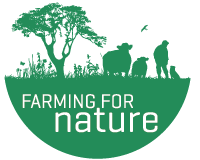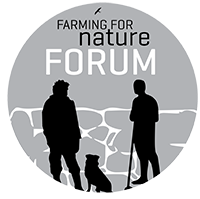 ‘Farming for Nature: the role of results-based payments’ is an edited book that collates several Irish experiences of developing and applying results-based approaches for the conservation of farmland biodiversity. This book is intended for an international audience of practitioners, policymakers and academics interested in results-based approaches for the conservation of biodiversity and the provision of ecosystem services.
‘Farming for Nature: the role of results-based payments’ is an edited book that collates several Irish experiences of developing and applying results-based approaches for the conservation of farmland biodiversity. This book is intended for an international audience of practitioners, policymakers and academics interested in results-based approaches for the conservation of biodiversity and the provision of ecosystem services.
The book is available to download as a pdf (~13 MB) Farming for Nature: the Role of Results-Based Payments.
Results-based approaches are the focus of a growing discussion about improved biodiversity conservation and environmental performance of EU agri-environmental policies. Published by Teagasc and the National Parks and Wildlife Service in 2020, this book outlines lessons learned from a collection of Irish case studies that have implemented results-based approaches and payments for the conservation of farmland habitats and species. The case studies include prominent projects and programmes: the Burren Programme, AranLIFE, KerryLIFE, the NPWS Farm Plan Scheme and Result-Based Agri-environmental Payment Schemes (RBAPS) project. The case studies and accompanying chapters share some of the Irish experience in developing results-based approaches by, for example, providing actual farm plans and scoring sheets, as well as detailing governance mechanisms, the role of advisory services, the choice of indicators, monitoring details and the relationship between results and payment. The book also includes reflections on the scientific background to results-based approaches and their policy context. It concludes by asking: where do we go from here?
Each of the chapters is available to download separately in the links below (pdf, ~12MB).
Chapter 1: Farming for Nature: Result-based Agri-Environment Schemes
This introductory chapter elaborates the aims of the book, the brief for contributors, and introduces the separate chapters.
Chapter 2: Overview of European Agri-Environment measures with emphasis on a Result-based Approach
Provides a critique of European CAP agri-environment policies, and considers the advantages and disadvantages of action-based and results-based approaches to the delivery of agri-environment objectives.
Chapter 3: Farming for Conservation in the Burren
Building on over twenty years’ experience in High Nature Value farmland, this chapter details the evolution, design and successful implementation of the first locally-led result-based agri-environment programme in Ireland – The Burren Programme.
Chapter 4: Farming for Conservation on the Aran Islands
The AranLIFE project team detail the Aran habitats of priority conservation value and the linked farming practices necessary for their maintenance. They outline the project design, the choice of indicators, field scoring sheets, validation of results and payment system.
Chapter 5: The KerryLIFE freshwater pearl mussel conservation project
This chapter describes the development and demonstration of result-based and incentivised measures to better manage the conservation of the critically endangered freshwater pearl mussel in lowland and upland farms in Co. Kerry.
Chapter 6: The Results-based Agri-Environment Payment Scheme (RBAPS) Pilot in Ireland
This chapter outlines the RBAPS (Result-Based Agri-Environment Payment Scheme) project. It developed and trialled results-based methods for six different biodiversity targets in Ireland, and this chapter describes the objectives, scoring systems, management guidelines and results-based payments.
Chapter 7: The National Parks and Wildlife Service (NPWS) Farm Plan Scheme
The NPWS outline the main purpose of the Farm Plan Scheme, and how it promotes a focussed, targeted and innovative approach to farming for habitats and species of conservation concern in some of Ireland’s most important biodiversity areas.
Chapter 8: Policy Environment: Ecosystem services and the role of Results-based Payment Schemes (RBPS) in integrated approach to agricultural land use
This chapter brings the discussion back to programme design and policy evaluation, and reflects on the opportunities and challenges in developing efficient payments for an ecosystem services approach.
Chapter 9: Synthesis and reflections on selected results-based approaches in IrelandThis synthesis chapter collates and restates the key findings and lessons learned from the case studies. It discusses the complementarity that may be achieved between action-based and result-based hybrid approaches, and considers different approaches to structuring the relationship between payment and performance. It considers the future challenges in extending the application of results-based approaches within national and European contexts.
(Words by Teagasc)

